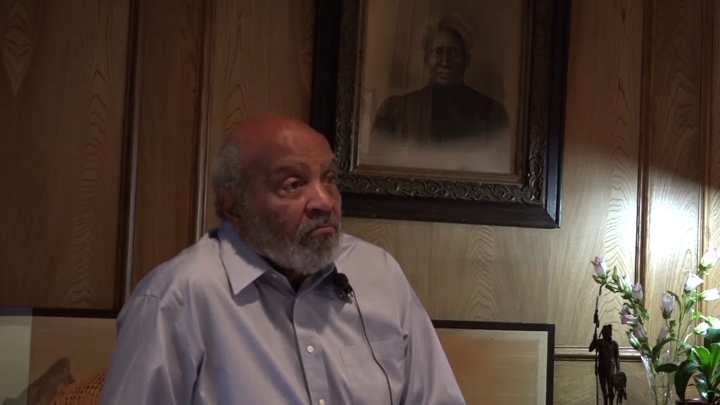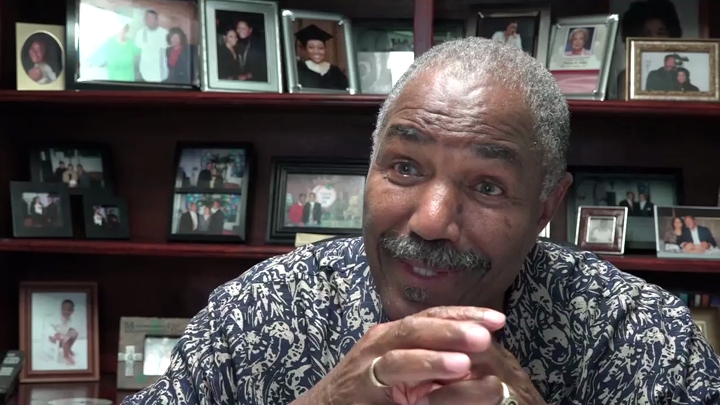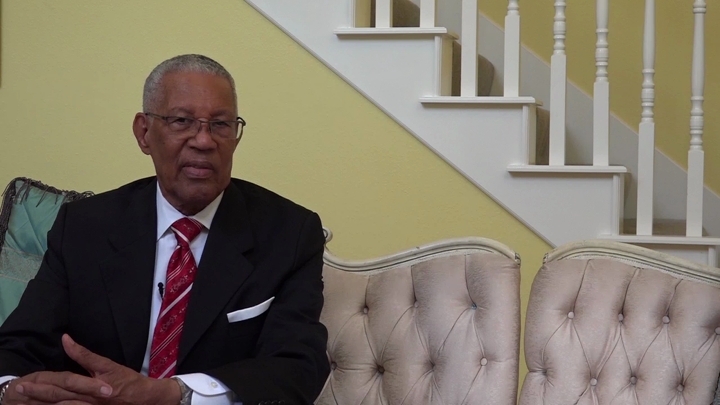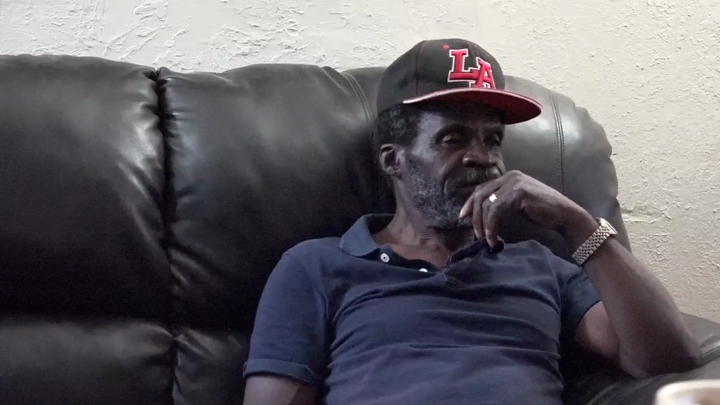Luthuli-Allen / Growing Up
sign up or sign in to add/edit transcript
Lituli-Allen: Okay, I was born in Amarillo, TX 1948. My dad was working at the big munitions plant. Pan-Texas is commonly known in Amarillo. He got sick from a dread disease called Bright’s disease and he deceased, and so my mother and I moved back to Louisiana. My mother went to college at Grambling College. After she finished college we relocated from her birthplace in north Louisiana to south Louisiana. And so, I went to high school in South Louisiana. I finished high school in 1966. Interviewer: How long were you in Amarillo? Lituli-Allen: A little over two and a half years. Interviewer: So, you don’t have any recollections of growing up in Amarillo? Lituli-Allen: None. Interviewer: What was it like growing up in northern Louisiana and then going to southern Louisiana? Lituli-Allen: Well, I tell you what, growing up in north Louisiana. Well, first let me say that because of Jim Crow segregation my mother’s brothers had all left and gone to California because of the lack of opportunity and how rigid the racial system was in north Louisiana. My parents and grandparents tried to provide a type of self-contained system that would have all of the supports, culturally etc. that we needed to succeed and to minimize our contact with a hostile white world at that time. I think I very clearly remember in 1955, our parents and grandparents set us down, myself and my cousins, and we watched the funeral of Emmett Till on TV. So, we were not entirely isolated, but there was a kind of specific role and place that the races were supposed to have, and our community leaders tried to make sure that we had what was necessary to succeed. There were a lot of events that took place during the time that I was in childhood. I do remember when Little Rock was being desegregated during the time of Eisenhower at Central High School in Little Rock and the federal troops had to come out to intervene between the black students and the screaming white mobs. We watched that on TV. Some other similar kinds of events were certainly the bombings of the church in Birmingham in 1963 and the assassination of John Kennedy. I think the other events that were taking place inside the Deep South had a terrific impact on how we viewed the world. There were all of these indicators, or really monuments, to white supremacy that were around us in terms of the accommodations: white and colored, the water fountains, the police presence. It was a decaying order but at the same time it was quite vibrant at that particular time. You always looked at the instruments of force and violence which were the law enforcement authorities. We knew that something was wrong when we were very young, but it took us some time to form some conclusive views on what was wrong.
| Interview | Interview with Omowale Luthuli-Allen |
| Subjects | Family |
| Family › Parenting | |
| Family › Childhood Experiences | |
| Race Relations › Black-White Race Relations | |
| White Resistance to Civil Rights | |
| Education › Education and Integration | |
| Education › Education and Integration › Resistance to School Integration | |
| Historic Periods › Jim Crow Period | |
| Historic Periods › 1946-1950 | |
| Historic Periods › 1951-1955 | |
| Tags | Grambling State University |
| Little Rock Nine | |
| Emmett Till | |
| Pantex Plant | |
| sign up or sign in to add/edit tags | |
| Interview date | 2016-06-17 |
| Interview source | CRBB Summer 2016 |
| Interviewees | Luthuli-Allen, Omawale |
| Duration | 00:06:05 |
| Citation | "Growing Up ," from Omawale Luthuli-Allen oral history interview with , June 17, 2016, Civil Rights in Black and Brown Interview Database, https://crbb.tcu.edu/clips/3431/growing-up, accessed February 19, 2026 |






